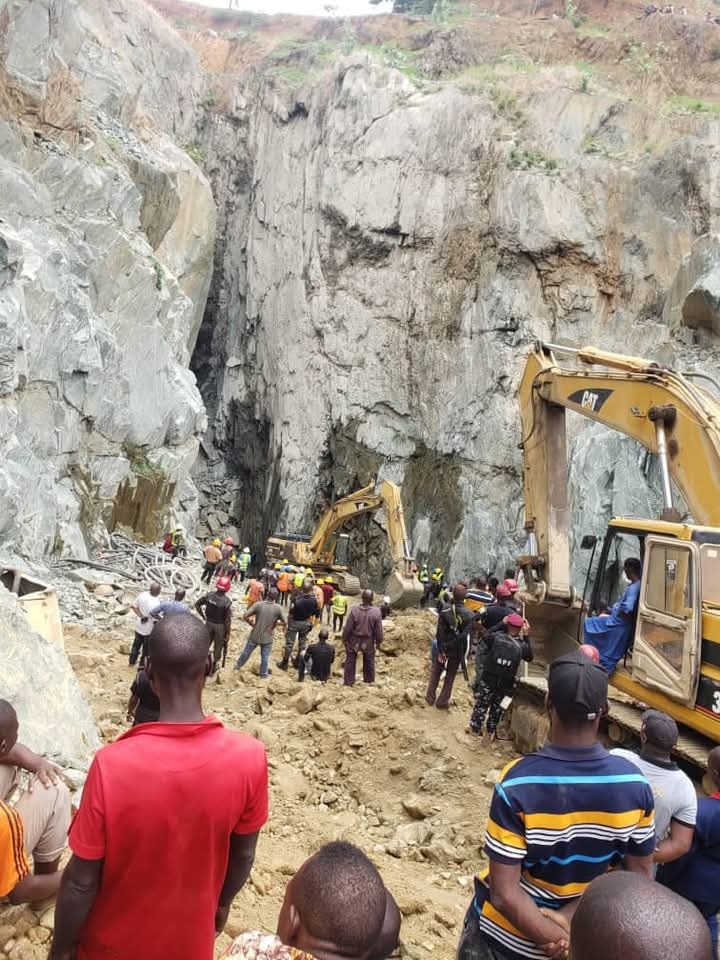Illegal mining: FG arrests 327 suspects, prosecutes 143
By Martha Agas
The Federal Government says it has arrested 327 suspects for illegal mining and prosecuted 143 across the country since the Mining Marshals (MM) began operations in 2024.
The Minister of Solid Minerals Development, Dr Dele Alake, made the disclosure at a news conference marking the one-year anniversary of the operations of the marshals.
The News Agency of Nigeria (NAN) reports that the MM, a security outfit of the solid minerals sector, was inaugurated on March 21, 2024, to address the surge in illegal mining activities across the country.
The security personnel were drawn from the Nigeria Security and Civil Defence Corps (NSCDC) and trained in strategic and tactical skills to detect, engage, and combat illegal miners, bandits, and other criminal elements in the sector.
NAN also reports that MM began operations with 2,220 personnel, which has since been increased to 2,670.
Alake stated that a key target for the marshals in 2025 was to secure the conviction of the 327 individuals arraigned in court to enhance deterrence and enforce compliance with the law.
He also acknowledged the contributions of government agencies such as the Economic and Financial Crimes Commission (EFCC) and the army for their efforts in the drive to sanitise the solid minerals sector.
“This month, the Federal High Court, Ilorin, Kwara State, sentenced two foreigners, Yang Chao and Wu Shan Chuan, to prison for illegal mining of solid minerals following a case prosecuted by EFCC.
“We also commend the EFCC for its diligent prosecution of illegal miners.
“In May last year, the EFCC successfully prosecuted and secured the conviction of two other foreigners, Duan Ya Hong and Xiao Yi, to one year of imprisonment for illegal mining at another Federal High Court, also sitting in Ilorin, Kwara State,” he said.
According to him, the MM have played a crucial role in tackling the severity of illegal mining, which has been exacerbated by companies collaborating with individual miners to carry out the act.
He added that the marshals had reclaimed 98 mining sites since beginning operations by clearing illegal miners who had occupied licensed areas for more than a decade, preventing the rightful owners from operating.
“According to our records, MM recovered over 98 sites last year. This has enabled many licence owners to return to site and resume operations.
“This will, ultimately, improve royalties and raise the contribution of the solid minerals to the country’s revenue.
“So far, the MM has identified 457 suspected illegal mining sites and has improved intelligence gathering on these sites,” he said.
According to the minister, the mining marshals use technology in their operations, including miniature robots and drones for surveillance.
He added that they employed communication tools to deliver early warnings, effectively distinguishing unarmed civilians from armed bandits, who are the main targets of their operations.
He said that the MM, in its second year of operations, would increase their engagements in other parts of the states.
Alake emphasised that MM previously held direct engagements across 10 states: Niger, Kogi, Nasarawa, Akwa Ibom, Ondo, Kaduna, Enugu, Abia, Kwara and the Federal Capital Territory.
The minister said that in addition to the kinetic measures used to combat illegal mining, non-kinetic measures would be intensified to strengthen the relationship between the government and artisanal miners and expand the registration of cooperatives.
He disclosed that the number of personnel would be expanded, and more logistics, including vehicles and other equipment, would be provided to the Mining Marshals to strengthen their operational capacity.
He urged them to prepare for tougher tasks as the government consolidates its operations to remove more illegal miners from sites and ensure their prosecution.
On his part, the Commandant of the Mining Marshals, John Attah, said their operations were guided by the provisions of the law and reaffirmed their commitment to flushing out illegal miners.
Attah thanked the minister for his support and urged the public to view their operations as a national project aimed at the country’s progress. (NAN) (www.nannews.ng)
Edited by Peter Amine






